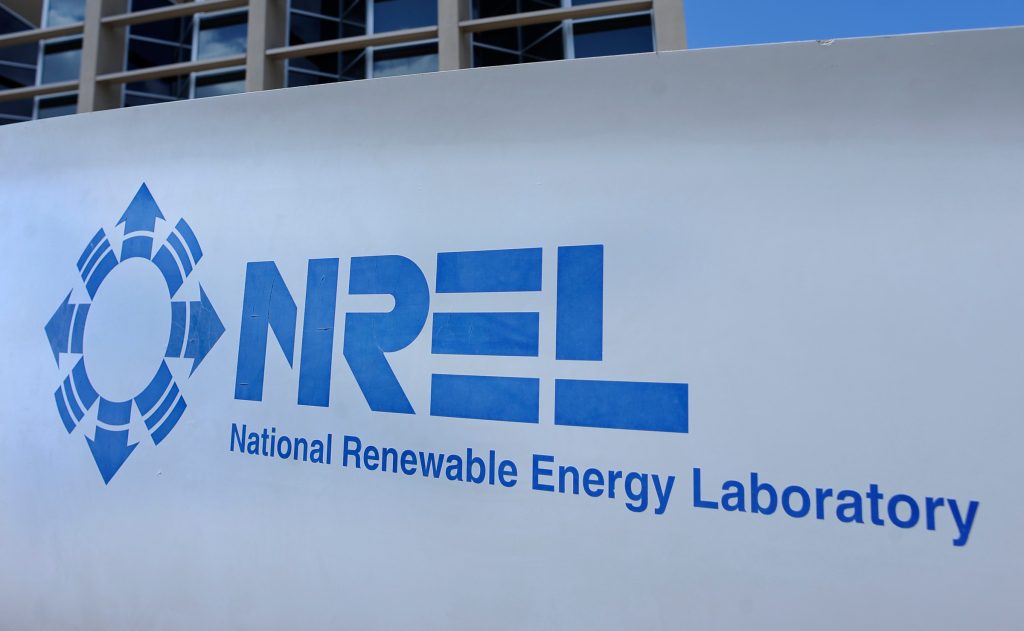The Polis administration hopes to turbo-charge Colorado’s status as a renewable energy center with a business park where academics, industry and government researchers can collaborate on cutting-edge technology.
The Global Energy Park, or “Glo Park,” is planned on about 100 acres next to the National Renewable Energy Laboratory in Golden. A series of land swaps in the area to put together a campus and a year of discussions with about 50 people led to this week’s announcement of the project.
After the Jefferson County commissioners gave their OK on Tuesday to the proposal, Gov. Jared Polis talked about the planned office park focused on green-energy innovation and efforts “to continue Colorado’s leadership role in clean tech.”
The legislature’s Capital Development Committee also gave the proposal the green light.
“I think the hardest part is behind us, which was pulling together the different state landowners, federal landowners, the county, around a cohesive vision and plan for the property with all the stakeholders on board,” Polis said. “And now it’s ready to enter the phase of a public/private partnership.”
The next step is to seek solicitations from developers in what is expected to be a national search. The process will be run through the office of the state architect and a group of specialists will evaluate the proposals, said Tobin Follenweider, deputy executive director of the state Department of Personnel and Administration.
“We don’t yet have a timeline for that, but we would expect it to take at least two to three months while we identify the best qualified developer for the project,” Follenweider said.
The money for building the park is expected to come primarily from private sources, with companies and organizations locating businesses and research facilities there.
Polis said the project will build on Colorado’s move to more renewable energy.
“We want to make sure that as the transition occurs in Colorado, across the country, across the world, that a lot of those ideas are powered out of Colorado, with good jobs for Coloradans,” Polis added.
Lu Cordova, the governor’s adviser on efficiencies and digital transformation, has been working on the proposal for the last year. She said partners include NREL, the Department of Energy, the Colorado School of Mines, the University of Colorado and Colorado State University.
“There’s only one NREL and this is a developer’s dream, to build a mixed-use energy park with NREL as the anchor tenant,” Cordova said. “NREL is a closed-security campus and this is an open campus, so it gives them a chance to collaborate with people and organizations from around the world.”
Cordova said she expects the energy park to feature business incubators and accelerators as well as space for collaborative work and research.
“We don’t expect a huge organization to move there,” Cordova said, “but we do expect huge organizations and small (ones) to move divisions there and people to come and work with NREL.”
NREL has 16 different research programs, which include energy, energy-efficient buildings and transportation and water, according to its website. The laboratory, in the Department Energy, has more than 900 partnerships with companies, nonprofits, government agencies and universities.
Colorado is seen as being ahead of several states when it comes to getting its electricity from renewable sources. The state is expected to surpass 40% renewable energy by the end of the decade, according to the environmental group Natural Resources Defense Council.
The governor’s plan to limit the impact of climate change includes nearly all the cars on Colorado roads being electric by 2050. However, legislators and conservation organizations contend that Polis’ plan to cut greenhouse gases is off track to meet statewide goals.
A 2019 state law sets the goals of reducing greenhouse-gas emissions from 2005 levels by least 26% by 2025; 50% by 2030; and at least 90% by 2050.
This content was originally published here.

